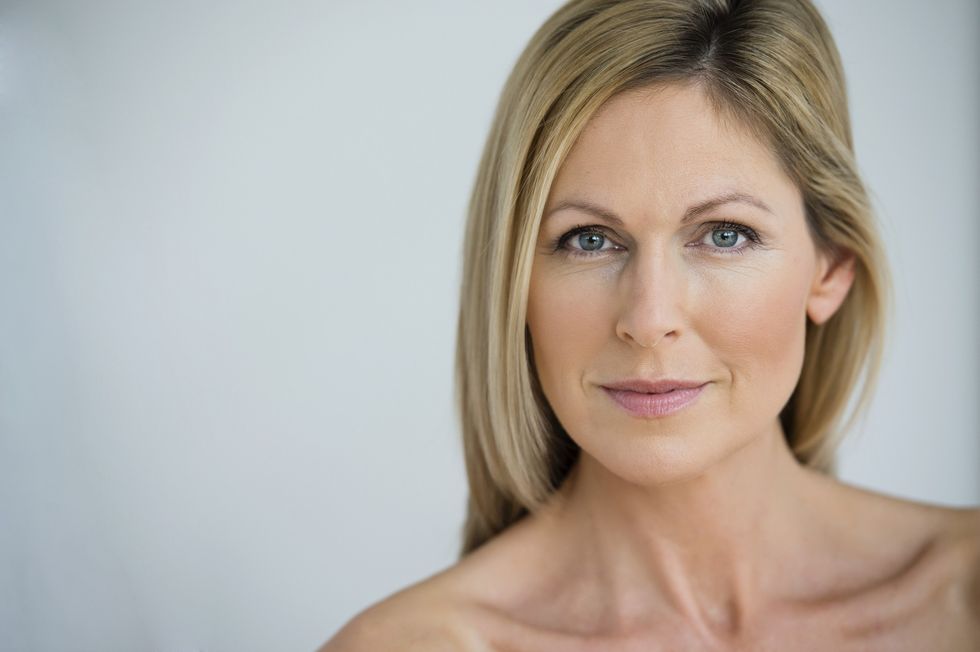'I'm 56 and people always ask me my anti-ageing tips - I swear by 2 skin care ingredients that make me look 10 years younger'

There's more to an effective skin care regime than cleanser, moisturiser and sunscreen
Don't Miss
Most Read
Latest
Developing an excellent skin care regime is key to looking your best and potentially even taking years off your appearance.
According to a fashion and beauty magazine editor turned content creator, investing in a retinol and vitamin C product is essential for mature skin.
In a YouTube video on how to look 10 years younger in 10 minutes, beauty enthusiast Leonie Barlow said: "I'm 56 years old and regularly get asked about my best anti-ageing skin care and makeup tips - and today I'm sharing them all with you."
She said that while her tips are of course "subjective", they can make you look "10 years younger".

'I'm 56 years old and regularly get asked about my best anti-ageing skin care and makeup tips'
|YouTube / The Style Insider
The 56-year-old shared the night-time step that takes years off her age, plus the foundation hack that gives her a "flawless finish".
She also shared the two skin care ingredients she credits for her beautiful complexion.
Leonie stated that she "absolutely swears by" retinol products although she warned fellow skin care enthusiasts to "start slowly and small" with them.
She explained: "These products can be quite hard-hitting and if you're prone to getting a little bit of a reaction, these are going to give it to you."
According to Leonie, retinol is "essential" for mature skin, as is a vitamin C product.
She said: "If you haven't tried them before, you will definitely notice some changes in your skin.
"I do keep seeing dermatologists talk about the two key products you need to be using if you have mature skin - and that is vitamin A and vitamin C products."
She advised women in their 40s and beyond to invest in these and incorporate them into their skin care "line-up".
Skin care experts at La Roche-Posay outlined the benefits of both products.
Retinol
Experts stated: "Retinol is a type of vitamin A that is renowned for its ability to help promote skin cell regeneration. As a result, it's considered to be a powerful ingredient to incorporate into your daily or weekly skincare routine.
"Since its discovery and entrance onto the skincare scene in 1971, this humble ingredient has quickly taken on a reputation as a cure-all for every possible skincare concern. While there’s no such thing as miracles, retinol is certainly one of our best-loved ingredients, and for good reason."
Retinol has many skin-boosting benefits; it's great for acne and blemish control, promoting a radiant complexion and combatting severe skin issues.
When it comes to anti-ageing, the experts said: "Retinol belongs to the vitamin A family and, among its many functions, is needed by the body to help keep the skin healthy. Retinoids, the compound found in your skin care products, is a derivative of retinol.
"Retinoids improve the quality of the skin by boosting the skin's cell renewal rate, preventing the breakdown of collagen (which keeps skin firm) and strengthening the lower layers of the skin, which helps to reduce the formation of deep-set wrinkles. As a result, the skin looks fuller, firmer and more radiant, with fewer visible lines."
LATEST DEVELOPMENTS

Strategic skin care can have a transformative effect on your appearance
|GETTY IMAGES
Vitamin C
Experts said: "Vitamin C is a powerful antioxidant that can be found in sources such as citrus fruits and leafy green vegetables. The most effective form of vitamin C on skin is L-ascorbic acid.
"When our skin is exposed to UV light, pollution or other environmental stressors, reactive oxygen species or free radicals are formed and may cause damage to the skin cells. This, in turn, leads to signs of skin ageing (i.e. sun spots, fine lines and wrinkles). Vitamin C helps protect the skin against damage from oxidative stress by neutralizing free radicals."
The benefits of vitamin C are many, with the experts explaining that it may protect against sun damage by "reducing visible UV-induced skin redness". It may also "brighten dull skin", tackle an "uneven skin tone" and "promote even texture".
Before using a new skin care product, it's important to do your research and ideally, consult a health care practitioner.
It's also crucial to be aware of the potential side effects of a chosen product and if they are suitable for you. For example, those who are pregnant, breastfeeding or have ultrasensitive skin should not use retinol.
For more information on both retinol and vitamin C, Britons can consult La Roche-Posay.










